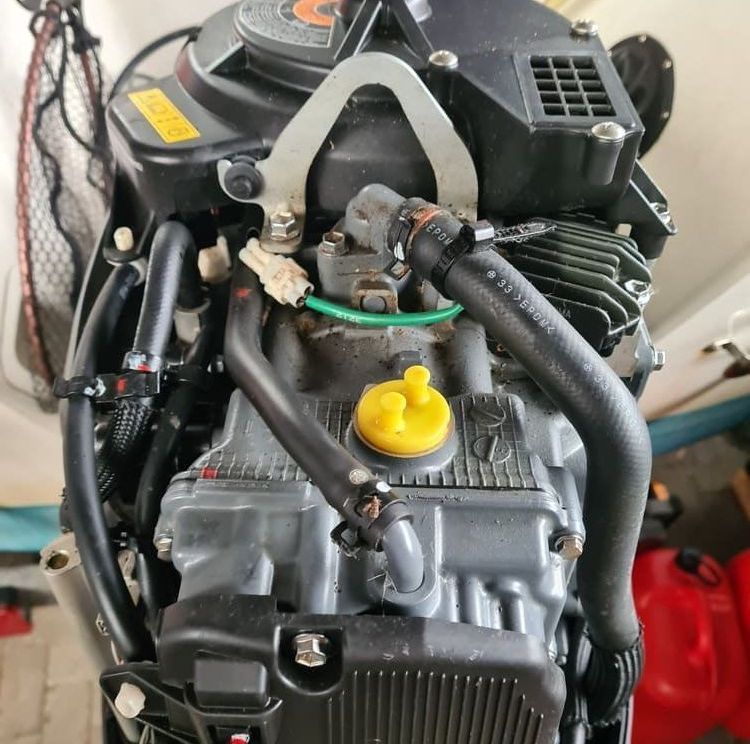How to become a boat mechanic?
10 Steps to Becomming a Boat Mechanic
If you have a passion for boating and a knack for fixing things, becoming a boat mechanic could be a fulfilling and rewarding career choice. Boat mechanics are essential in ensuring that boats run smoothly and safely, allowing their owners to enjoy the water with peace of mind. This guide will walk you through the steps to become a boat mechanic, from acquiring the necessary skills and education to finding your first job in the field.
Read on here if you want to know
how much a boat mechanic makes.

Step 1: Develop a Passion for Boating
The first step to becoming a successful boat mechanic is to cultivate a genuine passion for boats and boating. Spend time around boats, learn about different types of vessels, and understand the basics of how they operate. This foundational knowledge will serve you well as you progress in your career.
Step 2: Obtain a High School Diploma or GED
A high school diploma or GED is typically the minimum educational requirement for aspiring boat mechanics. Focus on subjects like mathematics, physics, and shop classes that involve hands-on mechanical work. These subjects will provide a strong foundation for the technical skills you’ll need.
Step 3: Gain Hands-On Experience
Practical experience is crucial in this field. Start by working on small engines or volunteering at a local marina or boatyard. This hands-on experience will help you understand the basics of marine engines and other boat systems. Additionally, it will provide you with valuable networking opportunities within the boating community.
Step 4: Enroll in a Marine Mechanic Program
Consider enrolling in a formal marine mechanic program at a technical school or community college. Here you will find Boat mechanic schools in Florida. These programs offer specialized training in marine technology, including courses on marine engines, electrical systems, and hull maintenance. Some well-known programs include those offered by the Universal Technical Institute (UTI) and the Marine Mechanics Institute (MMI).
Step 5: Obtain Certifications
Certifications can enhance your credibility and job prospects. Some important certifications for boat mechanics include:
- American Boat and Yacht Council (ABYC) Certification: Recognized as the gold standard in marine certification, ABYC offers certifications in various specialties such as electrical systems, diesel engines, and corrosion control.
- National Marine Manufacturers Association (NMMA) Certification: This certification focuses on ensuring that mechanics adhere to industry standards and best practices.
- Manufacturer-Specific Certifications: Many engine manufacturers, such as Mercury Marine and Yamaha, offer specialized training and certification programs for their products.
Step 6: Apprenticeship or On-the-Job Training
Many boat mechanics start their careers through apprenticeships or on-the-job training programs. These opportunities allow you to work alongside experienced mechanics, gaining practical knowledge and skills. Look for apprenticeship programs through local marinas, boatyards, or technical schools.
Step 7: Build a Strong Skill Set
To be a successful boat mechanic, you need a diverse skill set. Here are some key skills to focus on:
- Mechanical Skills: Understanding how engines and other mechanical systems work and being able to diagnose and repair issues.
- Electrical Skills: Troubleshooting and repairing electrical systems on boats, including wiring, batteries, and electronic devices.
- Problem-Solving Skills: The ability to diagnose problems accurately and find effective solutions.
- Attention to Detail: Precision and careful attention to detail are crucial in ensuring repairs are done correctly and safely.
- Customer Service Skills: Good communication and customer service skills are important for explaining repairs and building trust with customers.
Step 8: Find Employment
Once you have the necessary education, certifications, and experience, it’s time to find a job. Look for openings at marinas, boatyards, marine dealerships, and repair shops. Networking within the boating community can also help you find job opportunities. Consider joining professional organizations like the ABYC or the National Marine Electronics Association (NMEA) to connect with industry professionals and stay updated on job openings.
Step 9: Continue Learning and Advancing
The marine industry is constantly evolving, with new technologies and advancements. To stay competitive, continue learning and updating your skills. Attend workshops, take additional courses, and stay informed about industry trends. Advanced certifications and specialized training can open up new career opportunities and increase your earning potential.
Step 10: Consider Starting Your Own Business
Once you have gained significant experience and built a reputation, you might consider starting your own boat repair business. This can be a challenging but rewarding step, offering the potential for higher earnings and greater control over your career. Make sure to develop a solid business plan, obtain the necessary licenses and insurance, and build a strong customer base.
Conclusion
Becoming a boat mechanic requires a combination of education, hands-on experience, and a passion for the marine industry. By following these steps, you can build a successful career that not only pays well but also allows you to work in a field you love. Whether you’re maintaining fishing boats, luxury yachts, or commercial vessels, the skills and knowledge you gain will keep you in high demand in the boating community.
If you’re ready to embark on this exciting career path, start by developing your skills, gaining practical experience, and pursuing the necessary certifications. With dedication and hard work, you can become a trusted boat mechanic, helping boat owners stay safe and enjoy their time on the water.